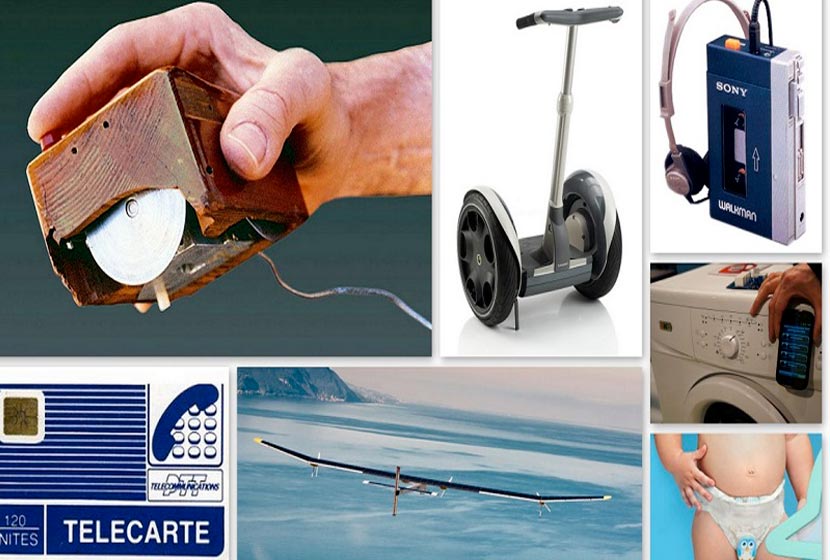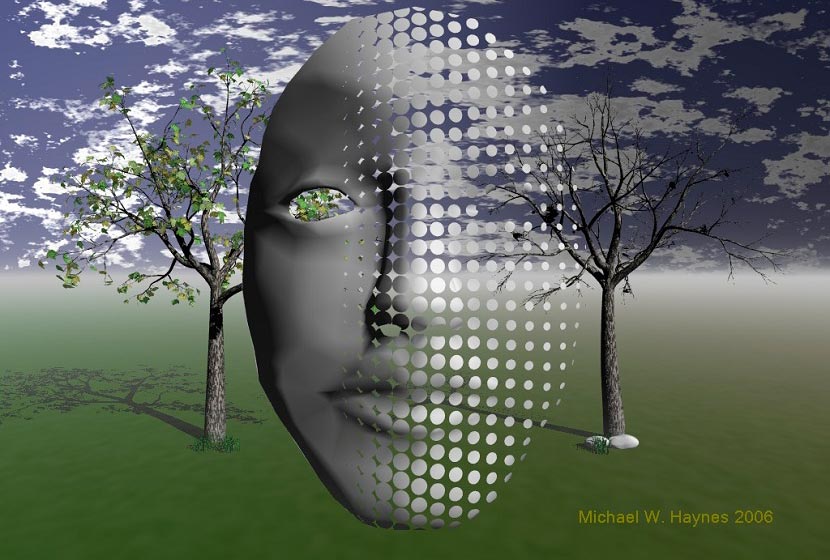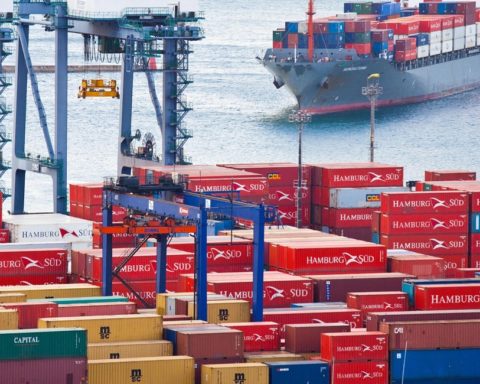Recurrent violence, wars and conflicts, a recurring phenomenon or a sign of the times? Beyond battles over territory and economic and political issues, do actual and potential wars rekindle our resilience?
Fire in the powder keg
 War is again raging in Israel, a crashed airliner that threatens peace and stirs up the diplomacy of the world, and other countries still under fire and blood such as Syria, Ukraine... [1]This upsurge in violence and this tension between States raises questions. Why now? Why violence and war again?
War is again raging in Israel, a crashed airliner that threatens peace and stirs up the diplomacy of the world, and other countries still under fire and blood such as Syria, Ukraine... [1]This upsurge in violence and this tension between States raises questions. Why now? Why violence and war again?
One might even wonder whether this has never really stopped, but, as in the Kosovo war, as soon as the sound of cannon fire gets closer, at least with Russia and Ukraine, then, again potentially threatened, we react.
 We will not go back over the obvious interests of the lobbies of the multinational companies that participate directly in wars: armament, BTP, banks... They envisage their survival only on the model of growth and the paradigm of war. There are billions to be gained by waging a war and rebuilding the country afterwards, the human losses are then considered as collateral damage.
We will not go back over the obvious interests of the lobbies of the multinational companies that participate directly in wars: armament, BTP, banks... They envisage their survival only on the model of growth and the paradigm of war. There are billions to be gained by waging a war and rebuilding the country afterwards, the human losses are then considered as collateral damage.
What good is the proximity of war to us?
If we were to take another angle of analysis, what would we understand?
With the Glorious Thirty [2] opulence having brought about individualism and comfort, reputed in countries at peace since the end of the Second World War, we have turned a blind eye to a number of dysfunctions, out of ignorance or laziness (devastating intensive cultures, we continue to sell arms to fuel armed conflicts in the world, we consume without worrying about the consequences, we have let the market take over politics, etc.).
Since then, the Thirty Pitifuls[3], repeated crises, the gradual loss of our gains and the decline of the middle class have begun to change behaviours. Events such as the fall of the World Trade Center towers have sounded the death knell of a glorious era, brought back questioning and doubt in homes and brought about all kinds of awareness. That of climate issues and our economic model (particularly following the banking crises of 2007-2008), and have led to renewed cooperation, respect and consideration for nature, from which biologists are beginning to learn the secrets of sustainability. Certainly, commitments and actions are notable and many initiatives are relayed by media engaged in the positive news of the actors (Positive Press, Sparknews, Reporters of Hope, ...) who participate in changing the world, but for the vast majority the inertia persists. World Cups contribute, through their media deployment, to mask for several weeks or months the dangerous cracks in our society and economy.
Certainly, commitments and actions are notable and many initiatives are relayed by media engaged in the positive news of the actors (Positive Press, Sparknews, Reporters of Hope, ...) who participate in changing the world, but for the vast majority the inertia persists. World Cups contribute, through their media deployment, to mask for several weeks or months the dangerous cracks in our society and economy.
The entertained crowd avoids the parade in the streets.
The virtual implications
 A handful of slightly more aware citizens are taking the courage to mobilize for noble causes, but for the vast majority, behind their screens, comfortably installed in their living rooms or offices. Social networks (mainly FaceBook, ScoopIt and partially LinkedIn), while they allow the sharing of sometimes crucial or essential information, rarely trigger concrete actions or commitments. The mobilization of citizens is then virtual through Aavaz and other petition sites, but when it comes to commitment and action, crowds wither and "good consciences" shift their focus.
A handful of slightly more aware citizens are taking the courage to mobilize for noble causes, but for the vast majority, behind their screens, comfortably installed in their living rooms or offices. Social networks (mainly FaceBook, ScoopIt and partially LinkedIn), while they allow the sharing of sometimes crucial or essential information, rarely trigger concrete actions or commitments. The mobilization of citizens is then virtual through Aavaz and other petition sites, but when it comes to commitment and action, crowds wither and "good consciences" shift their focus.
We postulate that in the face of these virtual mobilizations and individualistic inertia, wars or their threats come to seize us in our guts to mobilize once again the resilience necessary to bring about the paradigm shift that millions of people are calling for. It seems that History is thus oscillating from periods of splendour or at the very least of quiet, even the Roaring Twenties, towards moments of ever more devastating chaos, which we observe, after the fact, has always resulted in a rise in the level of individual and collective consciousness.
Today we glossy on the necessary changes and we vote, or let vote, National Front in the presidential elections in 2002 and in the European elections in 2014.
Lacking concerted mobilization and concrete commitment to effective change, we retreat into or allow conservatism and fanaticism on all sides to operate, which is sometimes even worse than being mistaken. These tacit complicities gave rise to collaboration during the Second World War, to denunciations and all sorts of odious behaviour in response to existential fears.
 Each period of crisis sees its own cohort of folds and conservatisms of all kinds. Fears are answered by violence turned outside oneself towards scapegoats of any kind, historical as for the Jews, or towards any foreigner who, on principle, anthropologically represents archaic threats that have been revived. Those who are "different" catalyze the opprobrium and virulence of frustrations and anxieties.
Each period of crisis sees its own cohort of folds and conservatisms of all kinds. Fears are answered by violence turned outside oneself towards scapegoats of any kind, historical as for the Jews, or towards any foreigner who, on principle, anthropologically represents archaic threats that have been revived. Those who are "different" catalyze the opprobrium and virulence of frustrations and anxieties.
Superstitions take over like conspiracy theories or apocalyptic anxieties like the buzz of the end of the world in 2012 and with them the ghosts of the past resurface with their "anti" rhetoric. Oppositions regain strength and the opposing sides are ready to confront each other.
In the face of unmanageable pressure... "a good war."
The pressures on our growth model are legion, climate change, dwindling resources, ever-increasing demographics, water scarcity, growing inequalities with increasing poverty and ever-richer fortunes, economic, climatic and societal tensions weigh on the greatest number. As States have given up their power to the market and private banks, there is no longer a political vision offering a reasoned and sustainable alternative. So for a certain number of people the adage "a good war." seems to be the only way out of the "crisis".
The alternative of peace, the choice of resilience
In the face of growing threats of violence, however, there are more and more committed and active citizens to help bring about the change that is taking place.
What is sorely lacking in order to take the plunge is a truly political vision of our governments that would allow us to mobilize citizens towards a direction that makes sense and responds to societal issues and respects all living things and human beings.
Thus, how can we explain the fact that, on the occasion of the award of the Nobel Peace Prize to the European Union to highlight its actions to maintain peace for more than 75 years, nothing has been done to enhance the value of this so precious asset.
Evoking peace seems outdated, "it cannot be sold" because it is trivialized and despised, even though it is so essential. What sense is there in signing petitions for peace in Syria or Israel and not taking concrete action to develop this peace in our own country between the communities in conflict and a fortiori to help other countries?
Once again, the lack of exhortation to act, which could be the commitment of a government, increases the number of acts (violence and abuses). So it is likely that our blindness, selfishness and passivity will have systemic effects and that even more painful moments than those recently experienced will awaken our resilience.
So it is likely that our blindness, selfishness and passivity will have systemic effects and that even more painful moments than those recently experienced will awaken our resilience.
For let us remember that resilience is not only about recovering from trauma, it also means putting the past behind us and starting from a completely new base, and often, at least individually, it is an opportunity to realize one's dreams. So perhaps this will collectively give us the strength to realize the project of society to which so many of us aspire without mobilizing ourselves to act?
Nevertheless, let us continue to mobilize consciences and to invite commitment.
Amidst the deafening sounds of chaos a small college of citizens is moving to take back the reins of democracy, to make it evolve so that it regains its role as a political power at the service of the people, but the vast majority is still too mired in consumerism, inertia and comfort for meaningful change to take place.
So it is to be feared that these great global disasters will violently shake our fragile equilibrium to allow us to switch to a new paradigm of society that respects the different kingdoms of life.
There are a handful of us who need to be vigilant and attentive to the need to change first our consciousness and then our behaviour in order to commit ourselves concretely to actions that facilitate significant change. However, if this is not enough, if the anticipation and information of the necessary transformations does not succeed in touching the hearts and souls of the majority, then only the passage through violence, obscurantism, regression will be able to make us realize this quantum leap which is so vital for the sustainability of our species and the planet.
Christine Marsan, Psycho-sociologist
1] http://www.ledauphine.com/france-monde/2014/01/02/une-annee-2014-lourde-de-menaces-dans-le-monde; http://www.hrw.org/fr/news/2014/01/21/rapport-mondial-2014-la-guerre-affectant-les-civils-syriens-echappe-tout-controle
2][2] Jean Fourastie, Les Trente Glorieuses ou la révolution invisible de 1946 à 1975, 1979, Fayard, 1979.
3] Nicolas Baverez, Les trente piteuses, Champs, Flammarion, 1999.
Main illustration: Temple of Peace - Picasso 1952 (Vallauris)











